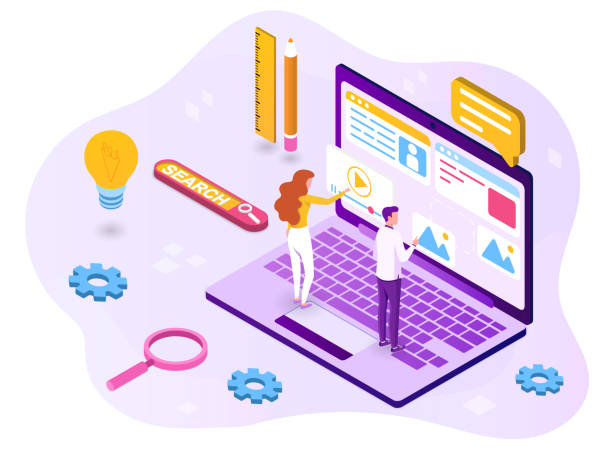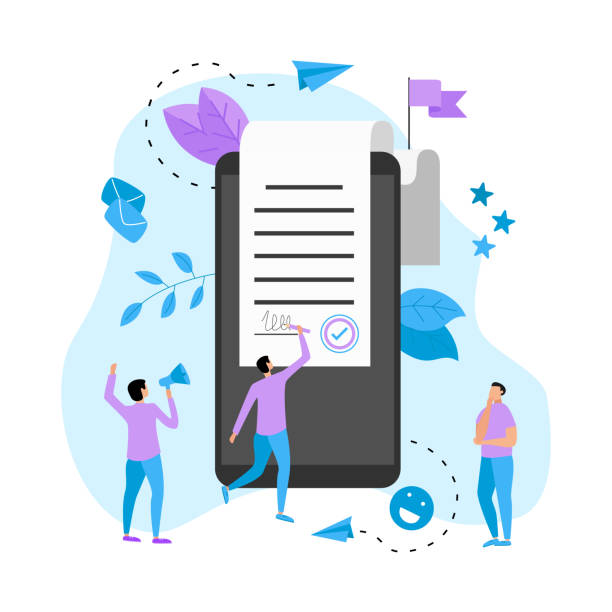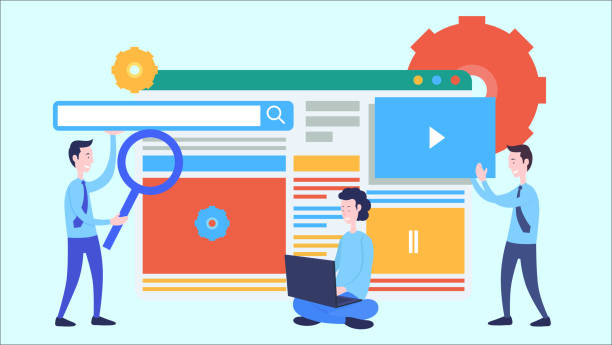The Importance of Personal Website Design in the Digital Age
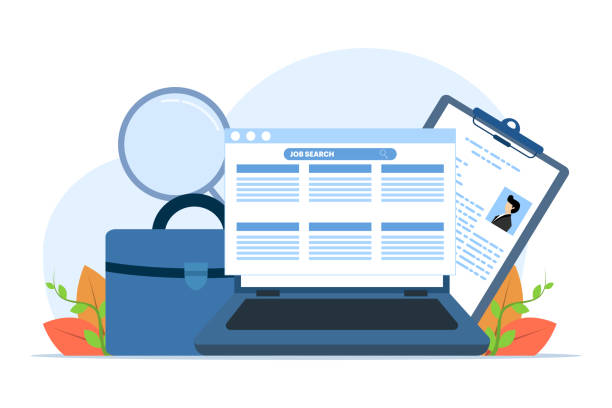
In today’s world, which is increasingly moving towards digitalization, having a powerful #digital_identity is essential for everyone.
Personal website design is no longer a luxury choice, but a fundamental need to showcase your #online_resume, skills, and experiences.
This space not only allows you to introduce yourself beyond the limitations of social networks but also provides a unique opportunity to build your #personal_brand and communicate directly with potential audiences or employers.
A personal website acts as the command center of your online presence, where you can have complete control over your content, design, and how you present your information.
These days, many people first turn to the internet to find information about individuals.
If you have a professional personal website, the first impression of you will be very positive.
Your personal website can include your portfolio, articles, opinions, work experiences, and even your personal life, to your desired extent and while maintaining privacy.
This is a powerful explanatory tool that helps you tell your story in an engaging and unique way.
This guiding approach allows the audience to gain a deep understanding of your abilities and interests before any direct interaction, which is very effective in attracting new job or collaboration opportunities.
A personal website allows you to comprehensively and organizedly showcase your expertise.
Does your company’s website function as it should for your brand? In today’s competitive world, your website is your most important online tool. RasaWeb, a specialist in professional corporate website design, helps you to:
✅ Attract customer credibility and trust
✅ Convert website visitors into customers
⚡ Get a free consultation!
Countless Advantages of Having a Dedicated Website
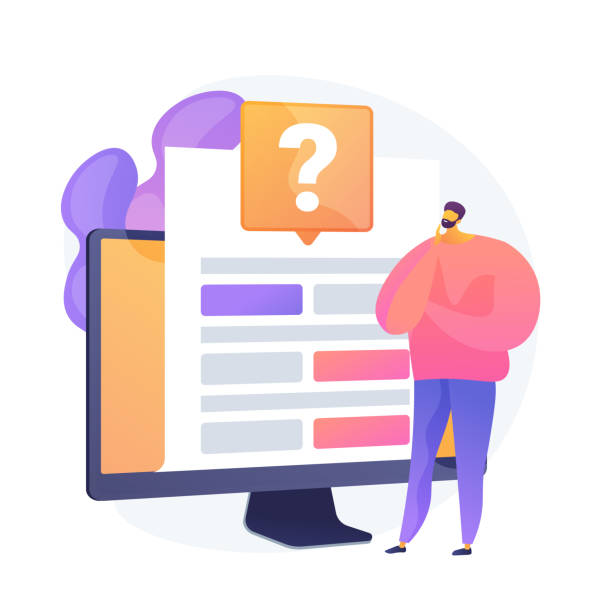
Having a dedicated website goes beyond a traditional resume and brings you numerous analytical and explanatory advantages.
The most important benefit is the ability to #showcase_capabilities and your projects visually and interactively.
Unlike a printed resume that has space limitations, a website allows you to upload any number of projects, photos, videos, and portfolios as you wish.
This enables direct_communication with audiences and employers.
Contact forms, comment sections, and even personal blogs create a space for two-way interaction that is rarely found on other platforms.
Furthermore, a personal website helps you attract #new_opportunities.
Many recruiters and potential clients first check your website to ensure your expertise and professionalism.
This website demonstrates your seriousness in your field of work.
Other advantages include complete control over content and design.
You are completely free to design your website according to your taste and visual identity, and you will have no restrictions from other platforms.
This is crucial for your personal branding.
This personal website design process gives you the ability to fully convey your message to the community.
The website’s ability to increase your professional credibility and standing in the industry is unparalleled.
By regularly updating and providing quality content, you can become a reference in your field.
Content Planning and Target Audience Definition
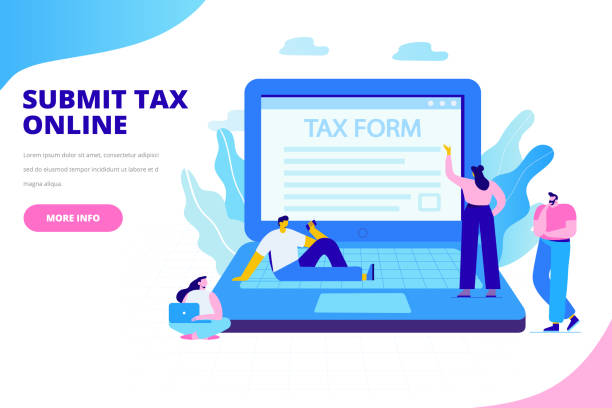
Before starting personal website design, the stage of #content_planning and defining the #target_audience is of particular importance.
This step is an educational and guiding approach that forms the foundation of your website’s success.
First, you need to answer this question: What is the main goal of building this website? Do you intend to showcase your portfolio, write specialized articles, introduce your services, or have a personal blog? The answer to this question will clarify your path.
Then, identify your target audience.
Who will visit your website? Are they potential employers, clients, students, or colleagues? Knowing your audience helps you design the content, tone, and #site_structure in a way that is appealing and useful to them.
For example, if your audience is employers, your resume, portfolio, and skills should be prominently displayed.
Conversely, if your goal is knowledge sharing, the blog section with in-depth and informative articles should be central.
Your content must be clear, engaging, and valuable.
A good personal website provides content that addresses the needs and questions of its audience.
| Content Type | Description | Main Application |
|---|---|---|
| Portfolio/Sample Work | Displaying projects, designs, writings, and achievements | Showcasing skills to employers/clients |
| Resume/About Me | Biography, work history, education, and skills | Basic and professional information about you |
| Blog/Articles | Writing specialized content, insights, and experiences | Knowledge sharing, SEO improvement, audience attraction |
| Services/Products | Introducing services you offer or products you sell | Customer acquisition and sales |
| Contact Me | Communication methods (email, contact form, social media) | Providing communication possibilities |
Choosing the Best Platform and Design Tools
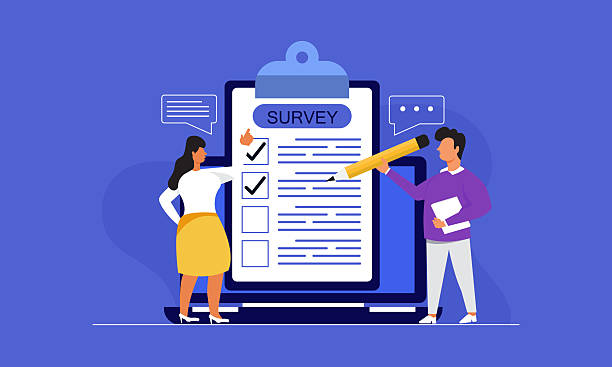
For personal website design, choosing the right platform is a specialized and crucial step.
There are numerous options available, each with its own advantages and disadvantages.
One of the most popular and flexible options is using a #Content_Management_System (CMS) like #WordPress.
WordPress, with thousands of themes and plugins, offers infinite customization and is suitable for individuals with various levels of technical knowledge.
You can have complete control over your website by installing WordPress on your host.
Another option is using #Website_Builders like Wix, Squarespace, or Behance.
These platforms provide a visual and Drag-and-Drop environment that makes website creation very simple and requires no coding knowledge.
These tools are ideal for individuals looking for a quick and easy setup of a personal website.
Although their flexibility is less than self-hosted CMSs, they are sufficient for starting and having an acceptable online presence.
Finally, for programmers and web developers, custom website design with coding using HTML, CSS, and JavaScript is a powerful option.
This method provides maximum flexibility and allows you to implement any desired feature and design.
However, it requires high technical knowledge and more time.
Platform choice depends on your technical knowledge level, budget, and specific needs.
It is important to do the necessary research before making a final decision and choose the best option for your personal website.
Each of these methods will help you in building a unique personal website.
Does your current e-commerce site design lead to losing customers and sales?
RasaWeb, with its modern and user-friendly e-commerce website designs, is your solution!
✅ Significant increase in conversion rates and sales
✅ Creation of strong branding and building customer trust
⚡ Get a free e-commerce website design consultation from RasaWeb!
Principles of Visual Design and User Experience (UI/UX)
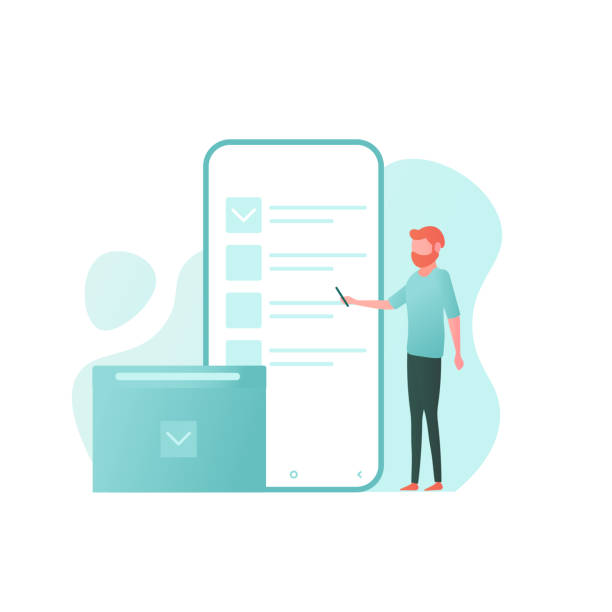
After choosing the right platform for personal website design, it’s time to implement the principles of visual design and user experience.
This stage has a specialized and educational aspect that brings your website to life.
#User_Interface (UI) refers to the visual appearance of the website, including colors, fonts, images, icons, and element layout.
A good UI should be visually appealing and user-friendly.
Use a consistent and harmonious color palette that matches your personal brand.
Choosing readable and appropriate fonts is also effective in user experience.
Alongside UI, #User_Experience (UX) deals with the user’s feelings and interaction with your website.
A good UX ensures that visitors can easily navigate your site and access the information they need.
Among the most important UX principles is simple and intuitive navigation.
Menus should be clear and accessible, and users should not struggle to find information.
Website loading speed is also a crucial factor; no one likes to wait for slow pages to load.
Responsiveness (Responsive Design) is also one of the important principles of modern design.
Your website should display correctly on all devices, from desktops to tablets and mobiles.
Using whitespace to give content more breathing room and prevent visual clutter, as well as using high-quality images and videos, significantly contributes to the attractiveness and #aesthetics of your website.
The ultimate goal of personal website design, by adhering to these principles, is to create an enjoyable and efficient experience for visitors, leading to increased dwell time and engagement with your content.
This directly impacts your success.
Search Engine Optimization (SEO) for Personal Websites
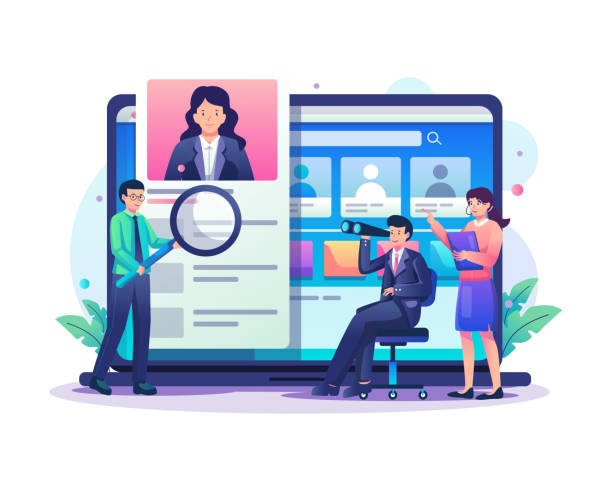
After completing personal website design, the next step, which plays a specialized and guiding role, is Search Engine Optimization (SEO).
#Personal_SEO refers to a set of actions that help your website rank higher in Google and other search engine results, allowing more people to find it.
First, you need to identify #keywords related to your field of activity.
These are the phrases people search for on Google to find you or your services.
Use keyword research tools to find the best keywords.
Then, naturally incorporate these keywords into your website’s content, page titles, meta descriptions, and even image names.
However, be careful to avoid keyword stuffing, as this practice is penalized by search engines.
Website loading speed, responsiveness (Responsive Design), and security (using HTTPS) are also important SEO factors that Google pays special attention to.
#Link_building is another important pillar of SEO.
Try to get links (Backlinks) to your site from reputable and relevant websites.
This shows Google that your website is trustworthy and valuable.
Also, create internal links between your website pages to help Google understand your site’s structure.
Regularly updating content with new and quality information, using heading tags (H1, H2, H3) to organize content, and writing appealing meta descriptions, all contribute to improving SEO.
With these actions, you can strengthen your online presence and ensure that your personal website design is easily accessible to your audience.
Website Maintenance, Updates, and Security

Personal website design is just the beginning; continuous maintenance and updating are as important as the design itself.
This section provides informative and explanatory content.
To maintain your website’s performance and #web_security, you must regularly perform maintenance tasks.
One of the most important actions is the #update of the core Content Management System (e.g., WordPress), its themes, and plugins.
Developers constantly release updates to fix security vulnerabilities and improve performance.
Failure to update can expose your website to cyberattacks.
Regular backup of website data is also a necessity.
In case of any problem or attack, having a backup allows you to restore your website quickly.
Use automatic backup plugins and store backups in a secure location, preferably off-site from the web server.
Monitoring website performance, including loading speed and potential errors, through tools like Google Analytics and Google Search Console, is also very important.
These tools help you identify and resolve issues before they affect user experience or SEO ranking.
| Frequency | Activity | Description |
|---|---|---|
| Weekly | Checking for updates | CMS core, themes, and plugins |
| Monthly | Full backup | Of database and files |
| Monthly | Checking for broken links | Fixing broken internal and external links |
| Quarterly | Database optimization | Removing redundant information to increase speed |
| Continuous | Security monitoring | Using firewalls and security tools |
Regular #site_maintenance and content_updates not only keep your website secure and fast but also significantly help improve SEO ranking and maintain visitor engagement.
A website that is continuously updated is a sign of your activity and dynamism.
This part of building a personal website should never be overlooked.
Earning Potential and Goals Beyond Introduction
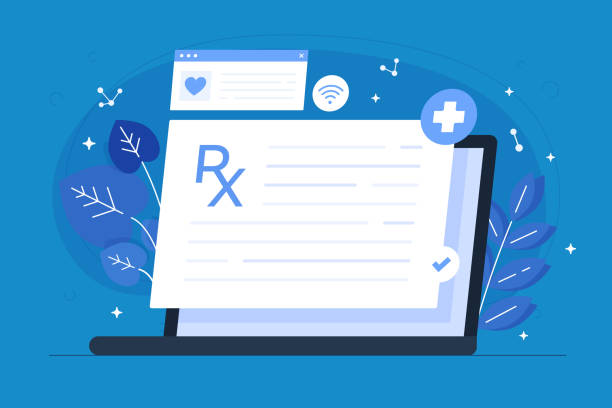
Can personal website design become a source of income beyond a simple introduction? This is a #thought_provoking_content yet analytical piece that explores the hidden potentials of a personal website.
The answer is yes! With proper planning and targeted content, your personal website can turn into a source of #online_income.
One of the most common methods is offering #consulting or coaching services in your area of expertise.
If you have knowledge and experience in a particular field, you can offer individual or group consulting services through your website.
Selling #digital_products such as e-books, online courses, design templates, or small software is another way to earn income.
If you are an artist, you can sell your artwork in print or digital form.
Also, Affiliate Marketing is another indirect way to earn income.
By introducing others’ products or services on your website and placing affiliate links, you receive a commission for every purchase made through your link.
Placing Google AdSense advertisements can also be a source of income for high-traffic websites, but it may slightly affect the user experience.
Beyond direct monetization, a personal website can also serve other goals, such as attracting speaking engagements, collaboration opportunities, or even creating an online community of like-minded individuals.
Your personal website is a valuable asset that, with proper management and quality content, can become a powerful tool for achieving your financial and professional goals.
This broader perspective adds to the importance of personal website design.
Does your current corporate site truly reflect your brand’s credibility? Or does it drive away potential customers?
RasaWeb, with years of experience in professional corporate website design, is your comprehensive solution.
✅ A modern, beautiful website tailored to your brand identity
✅ Significant increase in lead generation and new customers
⚡ Contact RasaWeb now for a free corporate website design consultation!
Common Mistakes in Design and Their Solutions
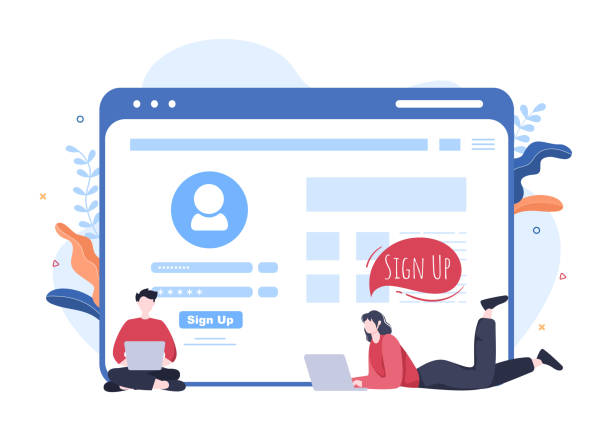
In the process of personal website design, mistakes often occur that can affect user experience and SEO ranking.
Understanding these #design_mistakes and knowing their solutions is an educational and guiding approach.
One of the most common mistakes is slow website loading speed.
Today’s users are impatient, and if your site is slow, they will leave it immediately.
To solve this problem, use optimized images, remove unnecessary plugins, and choose a reputable and fast hosting provider.
Another mistake is #inappropriate_content or insufficient content.
A personal website without valuable content is just an empty shell.
Regularly update your content, write articles related to your expertise, and clearly display your portfolio.
Failure to adhere to Responsive Design is also a major error.
Given the increasing use of mobile for web browsing, your website must display correctly on all devices.
Be sure to test your design on different devices.
Also, complex and unintuitive navigation can confuse users.
Menus should be simple and understandable, and users should be able to easily access the information they need.
Excessive use of advertisements or pop-ups can also be annoying and disrupt the user experience.
Ignoring SEO is also a fatal mistake.
If your website is not found in search engines, no one will see it.
By adhering to the SEO principles mentioned earlier, you can attract more visitors.
By avoiding these common mistakes in building a personal website, you can have a more effective and successful website that helps you achieve your goals.
The Future of Personal Website Design and New Trends

The future of personal website design looks very exciting with the emergence of #future_trends and new technologies.
This section provides a news-oriented and entertaining perspective on upcoming developments.
One of the most important trends is a greater focus on personalized user experience.
Websites, using Artificial Intelligence (AI) and machine learning, will be able to provide content and an experience tailored to each visitor.
This means your website can display relevant content based on the visitor’s interests and past behavior.
#Artificial_Intelligence and chatbots will also play a more prominent role in user interaction.
More advanced chatbots can answer visitors’ questions, guide them, and even provide 24/7 customer service.
3D designs and Virtual Reality (VR) are also entering the web domain and can provide an unparalleled visual experience for personal websites, especially for artists and designers.
The concept of #Web3 and blockchain technology can also revolutionize the future of personal websites.
These technologies can give users more control over their data and provide new opportunities for monetization and interaction.
No-Code and Low-Code website builders will also continue to grow, making personal website design easier than ever for non-technical individuals.
By following these trends, your personal website will not only stay up-to-date but can also become a leading tool in your field of activity, keeping you at the forefront of the competition.
This is an exciting look at the evolution of the web and your role in it.
Frequently Asked Questions
| Question | Answer |
|---|---|
| What is a personal website? | A personal website is an online platform that an individual creates to showcase their information, resume, portfolio, interests, or ideas. This website serves as a digital business card and a place for personal branding. |
| Why do I need a personal website? | Having a personal website helps you have a professional online presence, showcase your skills and experiences, connect with your audience, find new job opportunities, and increase your personal credibility. |
| What content should I include on my personal website? | Common content includes: About Me page (biography, education, experiences), resume, portfolio (projects, articles, designs), blog (writings, insights), and contact information. |
| What are the basic steps to create a personal website? | The steps include: 1. Defining goal and audience 2. Choosing a domain name 3. Choosing web hosting 4. Selecting a platform (e.g., WordPress or custom coding) 5. Designing and structuring 6. Content creation 7. SEO and optimization 8. Launch and maintenance. |
| Should I use a Website Builder or code it myself? | If you don’t have coding knowledge or are looking for a quick solution, website builders (like Wix, Squarespace) or CMSs (like WordPress) are good options. If you want full control and high flexibility and have technical knowledge, coding is the best way. |
| How important is the design (appearance) for a personal website? | Website design is very important. A beautiful, user-friendly, and professional design makes visitors have a good experience, stay longer on the site, and take your personal brand seriously. Poor design can have a negative impact. |
| What is Responsive Design and why is it important? | Responsive design means designing a website whose appearance and functionality automatically adapt to the screen size of the user’s device (desktop, tablet, mobile). This feature is crucial to ensure a good user experience on all devices. |
| How can I choose a good domain name for my personal website? | The domain name should be related to your identity (usually your first and last name), short and memorable, easy to pronounce, and avoid excessive numbers or hyphens. Common extensions like .com or .ir are usually preferred. |
| What is Web Hosting? | Web hosting is a space on an internet-connected server that stores your website files (such as code, images, videos) and makes it accessible to users 24/7. Without hosting, your website will not be accessible. |
| How can I promote my personal website? | You can use social media, search engine optimization (SEO), content marketing (blog writing), sharing links in email signatures, and networking with others in your field to promote your website. |
And other services from RasaWeb Advertising Agency in the field of advertising
Smart Reportage: A fast and efficient solution for increasing website traffic with a focus on Google Ads management.
Smart Custom Software: A professional solution for analyzing customer behavior with a focus on SEO-driven content strategy.
Smart Marketplace: A professional solution for campaign management with a focus on precise audience targeting.
Smart Website Development: A new service for increasing website traffic through precise audience targeting.
Smart Digital Branding: An exclusive service for increasing sales growth based on marketing automation.
And over a hundred other services in the field of internet advertising, advertising consultation, and organizational solutions
Internet Advertising | Advertising Strategy | Advertorial
Resources
Complete Guide to Personal Website Design
SEO Principles for Personal Websites
Choosing the Best Theme for a Personal Website
How to Write Engaging Content for a Personal Website?
? With RasaWeb Afarin, your business will be transformed in the digital world; from secure website design to targeted marketing, we are with you.
📍 Tehran, Mirdamad Street, next to Bank Markazi, Kazerun Jonubi Alley, Ramin Alley, No. 6


